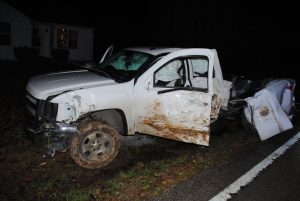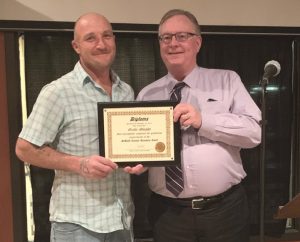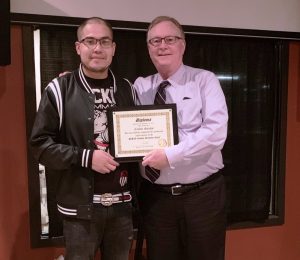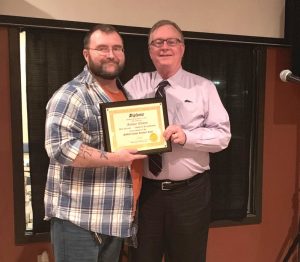News
Lady Tigers Finish 1-2 in Gatlinburg Tournament
December 23, 2018
By: Dwayne Page
After winning their first game of the Smokey Mountain Classic at Gatlinburg last week the DCHS Lady Tigers lost two straight and finished 1-2 in the tournament .
The Lady Tigers defeated Clay County, Kentucky 51 to 42 on Thursday but lost to Station Camp on Friday 43 to 36 and to Gatlinburg Pittman 53 to 48 on Saturday.
DeKalb County is now 11-4 on the season.
The remaining schedule is as follows:
Friday, January 4: White County-Home 6 p.m.
Tuesday, January 8: Upperman*-Home 6 p.m.
Friday, January 11: Macon County*-Away 6 p.m.
Tuesday, January 15: Smith County*-Away 6 p.m.
Friday, January 18: York Institute*-Away 6 p.m.
Tuesday, January 22: Livingston Academy*-Home 6 p.m.
Friday, January 25: Watertown*-Away 6 p.m.
Tuesday, January 29: Cannon County*-Home 6 p.m.
Friday, February 1: Upperman*-Away 6 p.m.
Tuesday, February 5: Macon County*-Home 6 p.m.
Thursday, February 7: Smith County*-Home 6 p.m.
Friday, February 8: Monterey-Home 6 p.m.
Man Injured in Friday Night Truck Crash
December 23, 2018
By: Dwayne Page
A 20 year old Smithville man was injured in a pickup truck crash Friday night at 6:43 p.m. on Highway 56 south.
Trooper Robert Melching of the Tennessee Highway Patrol said Benito Drew Castorena was driving south on Highway 56 in a 2012 Chevrolet Silverado and attempting to pass another vehicle in a no passing zone when he lost control. The truck ran off the roadway to the left, struck a utility pole and tree, and then overturned before coming to final rest off the roadway upright facing north.
Castorena was taken by DeKalb EMS to Ascension Saint Thomas DeKalb Hospital. He was cited for violation of the seat belt law, improper passing, and failure to exercise due care.
DeKalb Recovery Court Hosts Christmas Party and Graduation Ceremony
December 21, 2018
By: Dwayne Page & Norene Puckett
The DeKalb County Recovery Court program hosted its 9th annual Children’s Christmas Party on Tuesday, December 18 at the New Life Connection Center. This year’s party included both the Adult and Juvenile program and the children of the adult participants as well as family and friends.
Three adults graduated during the party including Grady Murphy, Carlos Santos, and Anthony Walters. Each graduate gave their testimony about how unmanageable their lives were prior to the program and each mentioned how thankful they were for the program saving their lives.
The night included a hot chocolate making station with Mrs. Claus, Christmas Carols and music provided by Don & Barbara Kannapel of the Smith County Anti-Drug Coalition, a Photo booth by Cosmos Creations, and of course Santa arrived to help pass out gifts.
This year’s sponsors were Saint Thomas DeKalb Hospital, Smithville Church of Christ, and a generous donation by Tom & Jackie Vickers of Sober Living of TN which made possible the purchase of 18 bikes for the children. A special thanks to New Life Connection Center for the use of their facility as well as the Smithville Fire Department who put all of the bikes together. The DeKalb County Recovery Court wants to thank Shan Williams and the rest of the community for continuing to support our program.
Twelve years after its beginnings in DeKalb County, the Recovery Court program (formerly known as Drug Court) has grown and is making a difference in the lives of more people, juveniles and adults. Recovery Court for adults, started by General Sessions and Juvenile Court Judge Bratten Cook, II in 2006, provides an alternative to incarceration for eligible non-violent offenders, who are deemed substance dependent. Judge Cook began the recovery court program for juveniles in 2002.
In a previous interview with WJLE, Judge Cook said “Probably 80-90% of the crimes in DeKalb County are some way or another related to drugs or alcohol. Many people who are on drugs or alcohol are stealing to try and get money for more drugs, forging checks on their parents, stealing credit cards and running them up, just things like that. It became the revolving door for jail. Unfortunately, there are still people who think that drug addiction is not a disease. That it is just a condition. They say “why don’t you just quit”? That is not what science has shown us over the years. Not that it is comparable to cancer, but when someone says “ just quit” and don’t take those pills anymore it’s almost like telling someone who has a tumor in their stomach, just reach in there and get it and throw it away and you’ll be okay. That’s just not the way it works. In fact, as the years have clicked by more and more of the science has been that addiction has indeed been a disease affecting the brain in various ways. When drug courts began, generally they were a one year program, divided into four different phases of three months each. We found out early on that one year just gets your toe wet. What science now shows is that it takes the brain at least a year of abstinence from drugs to even have the ability to try and stay abstinent. That’s the struggle these people have, especially when they first begin any type of program. The longer they are in the easier it becomes. But now two to three years is probably an average for our people to be in drug court,” he said.
Judge Cook said the program is an alternative to incarceration.
“The people in our program are non-violent offenders. They are people who are our next door neighbors. After all, spending $20,000 a year putting them in jail as opposed to approximately $5,000 a year treating them is a no brainer. One of my philosophies for many years has been as far as jail, we need to incarcerate the people that we are afraid of and treat the ones we’re mad at. Most of the drug people we all know, our family members that steal our credit cards or our guns and sell them for drugs, we’re not afraid of them. We’re just angry. We’re mad at them and those are the ones we need to treat,” said Judge Cook.
Participants are required to stay drug free and sober, get a job, and meet all other conditions expected of them.
“They are drug tested frequently. We see them in drug court once a week. They have to go to probation. They have treatment they go to. There are meetings. There is something every single day. We keep our thumb on them and we have to. But it is so rewarding especially when we see people who have had their children taken by DCS because of their addiction and then they get their kids back. Because one thing I have learned as juvenile judge is it doesn’t matter how sorry a parent is, those kids love them and want to be with them. It is so rewarding when they regain custody. They get a job. They get housing and they become responsible, respectable people. That’s what it’s all about,” he said.
DeKalb Recovery Court Coordinator Norene Puckett added that those who do well in the program are rewarded and those who don’t are sanctioned.
“ We as a team get together every week. We staff every person’s case in the program, and we go over what is going on with them. Are they doing good or bad?. If they have messed up some way, missed a meeting, failed a drug screen, or any kind of infraction in our program we issue a sanction that week. There is immediate response to any type of negative behavior. Let’s say someone failed a drug screen. The case manager would explain what’s going on in the person’s life. The treatment provider may talk about what they’re doing in treatment and the progress they are making or barriers they are having, and then the probation officer would say, for example, yes on a certain date he failed for marijuana. We, as a team, would then come up with recommendations to help this person and determine what the sanction should be for the negative behavior, but Judge Cook has ultimate say on the sanctions. We also reward them for positive things such as getting a job, GED or things like that,” said Puckett.
Team members who oversee the program locally in addition to Judge Cook and Recovery Court Coordinator Puckett are Sheriff Patrick Ray, Assistant District Attorney General Stephanie Johnson, John and Kay Quintero from Haven of Hope, primary treatment providers; Assistant Public Defender Scott Grissom, Probation Officer Jami Hood, Juvenile Case Manager Katie Parker, and Adult Case Manager Rhonda Harpole.
For more information about the Recovery Court Program call 615-215-8690 or visit the office on the main floor of the courthouse.
« First ‹ Previous 1 1995 2085 2093 2094 20952096 2097 2105 2195 2506 Next › Last »

















